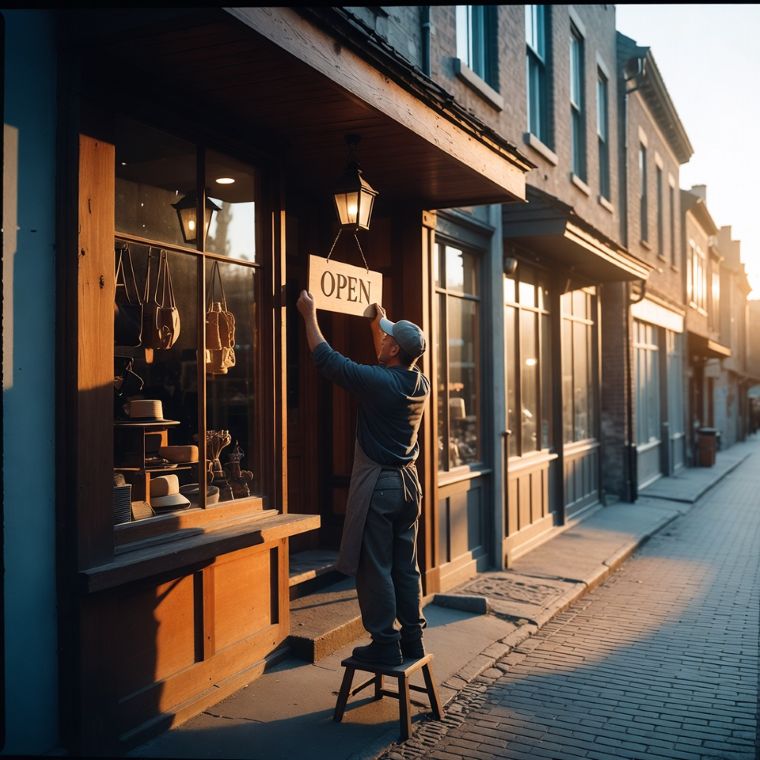
More than 32 million small businesses operate across the United States, shaping the character of local towns and driving job growth. These businesses face a mix of rules that influence how quickly they can open their doors, how easily they can access resources, and how much support they receive from their communities. Conversations around policies can feel complex at first, but understanding them helps people see the direct impact on Main Street. Many discussions also link back to ideas like empowerment for local shops, which plays a big role in helping communities stay strong.
Regulations look different from state to state, and the choices lawmakers make often shape how new business owners navigate their first steps. Political debates about these rules can influence everything from job creation to the long term health of a local town. Below is a closer look at six key reasons these regulations matter.
1. LLC Rules Shape How Entrepreneurs Protect Their Future
Starting a business comes with risks, and forming an LLC gives owners a way to shield their personal assets. Clear and simple LLC rules help new entrepreneurs move forward with confidence. If these rules become too confusing or expensive, fewer people are likely to start new ventures. This has a ripple effect. Fewer new businesses mean fewer new services and fewer job opportunities. Strong policies help keep communities lively and competitive.
2. Registration Costs Affect How Fast New Shops Open
Some states charge lower registration fees, which helps entrepreneurs get started without a heavy financial load. When fees climb too high, new owners often delay opening or skip the idea entirely. This slows down local economic growth. A fair system encourages more participation and supports steady expansion. As debates continue, policymakers need to look closely at how these costs affect everyday people trying to open small shops or service businesses.
3. Local Regulations Can Determine Whether Main Street Thrives
Successful business districts rely on simple, predictable rules. Parking requirements, building codes, and operating permits can support or slow down growth. When these rules work well, Main Street becomes a welcoming place. This connects to wider conversations about politics shaping online business trends, showing how policy shifts influence both physical and digital marketplaces.
4. Employment Policies Influence Job Creation
Hiring rules, wage requirements, and training incentives all determine how easily a business can expand its team. Businesses with clear guidelines have an easier time planning for growth. Stabilizing job opportunities strengthens local economies, and this helps neighborhoods develop long term stability. Lawmakers often debate these policies for years, but the real effects show up in small offices, cafés, salons, and repair shops just a few blocks away from where people live.
5. Tax Policies Decide How Much Room Owners Have to Grow
Taxes are a major part of any business plan. When tax rules provide enough room for owners to invest back into their operations, communities benefit. Business owners can hire more staff, improve their services, and expand their storefronts. When taxes become too complex or unpredictable, owners put growth on hold. Clear and steady tax rules encourage innovation and attract people who want to try new ideas while keeping their risk manageable.
6. Regulations Influence Long Term Main Street Development
Every rule, from building permits to tax credits, shapes the long term future of a downtown area. Regulations that are well designed help towns stay vibrant. They support lively districts filled with restaurants, bookstores, repair shops, boutiques, and service providers. When political debates lead to stronger rules, communities often see growth in tourism, jobs, and local pride. This is one more moment where empowerment for local shops becomes an important idea, because strong Main Streets depend on strong local leadership.
Conclusion
Small business regulations influence every part of Main Street life. They shape how owners register, hire, grow, and stay competitive. People often see these effects through new job openings, new store signs, or the gradual improvement of a local district. Political debates around these rules may seem distant, but they guide how towns and neighborhoods develop over time. That is why conversations around empowerment for local shops should continue, because stable policies help communities build stronger futures.
